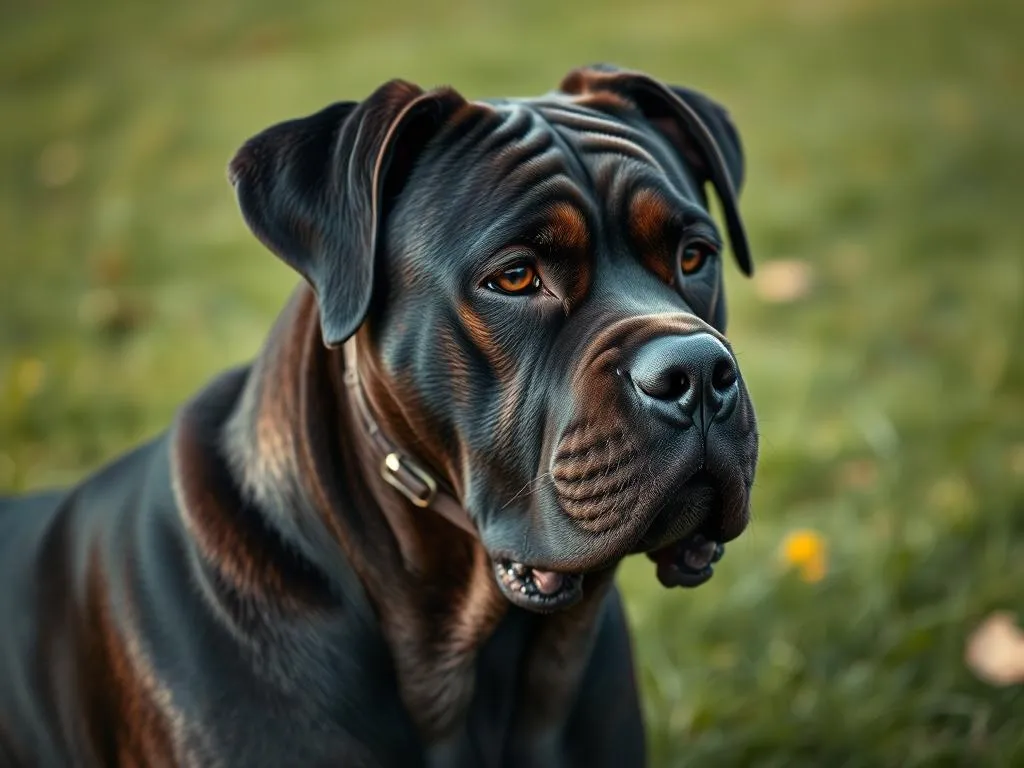
Introduction
The Cane Corso is a majestic breed known for its strength, loyalty, and protective nature. Originally bred in Italy, this dog was used for various purposes, including guarding properties, hunting large game, and protecting livestock. With rising concerns about home security, the importance of having a reliable guard dog has never been more significant. This article aims to evaluate whether the Cane Corso is a good guard dog by exploring its characteristics, instincts, training needs, and suitability for families.
Understanding the Cane Corso Breed
History and Origin
The Cane Corso has a rich history that dates back to ancient Rome, where it was utilized as a versatile working dog. Its ancestors, the Roman war dogs, served in various capacities, including as protectors of estates and as hunting companions. Over the centuries, the breed has evolved, but its primary role as a guardian has remained intact. In modern times, the Cane Corso is cherished not just for its guarding abilities but also as a family companion.
Physical Characteristics
The Cane Corso is a large and powerful dog, typically weighing between 90 to 120 pounds and standing 24 to 28 inches tall at the shoulder. Its muscular build, broad chest, and strong jaws make it an imposing presence. The breed features a short coat that can come in various colors, such as black, fawn, and brindle. Distinctive features like a square muzzle and deep-set eyes contribute to its alert and vigilant demeanor, essential traits for a guard dog.
Temperament and Behavior
The temperament of a Cane Corso is one of its most appealing aspects. These dogs are known for their confidence, loyalty, and intelligence. They are affectionate with their families but can be aloof with strangers, making them excellent watchdogs. However, early socialization is critical; it helps them distinguish between normal and threatening situations, ensuring they do not become overly aggressive.
Guard Dog Qualities of Cane Corso
Natural Instincts
Cane Corsos possess strong protective instincts. This breed is naturally inclined to guard its family and territory, often displaying a watchful demeanor. In comparison to other guard dog breeds, such as Rottweilers or German Shepherds, Cane Corsos have a unique blend of gentleness towards their families and fierce loyalty. Their instincts make them effective at deterring intruders simply by their presence.
Training and Obedience
While the Cane Corso has innate guarding abilities, training is essential to harness and direct these instincts. A well-trained Cane Corso can differentiate between a real threat and a non-threatening situation. Positive reinforcement methods work best for this breed, as they respond well to praise and rewards. Consistent training sessions focusing on obedience and specific commands will help ensure that the Cane Corso can perform its guarding duties effectively.
Role of Socialization
Socialization plays a pivotal role in shaping the behavior of a Cane Corso. Exposing them to different environments, people, and animals from a young age will help them develop a well-rounded personality. Proper socialization can reduce the risk of aggression and make them more adaptable. A well-socialized Cane Corso is more likely to be a reliable protector without unnecessary aggression.
Pros of Having a Cane Corso as a Guard Dog
Loyalty and Protective Nature
One of the most compelling reasons to consider a Cane Corso as a guard dog is its unwavering loyalty. These dogs form strong bonds with their families and will go to great lengths to protect them. Many Cane Corso owners share stories of their pets sensing danger before it happens, showcasing their innate protective nature.
Physical Strength and Courage
The Cane Corso’s size and strength are significant advantages when it comes to protection. Their powerful build allows them to confront potential threats with confidence. This breed is not just about physicality; they also possess the courage necessary to defend their home and loved ones.
Alertness and Vigilance
Cane Corsos are inherently alert and vigilant. They are quick to notice changes in their environment, making them excellent watchdogs. Their keen senses help them detect unusual sounds or movements, allowing them to respond appropriately to potential threats.
Versatility
Despite their guarding abilities, Cane Corsos can adapt well to family life. They are known to be affectionate with children and can coexist peacefully with other pets when properly socialized. This versatility makes them suitable for families looking for a combination of companionship and protection.
Cons of Having a Cane Corso as a Guard Dog
Potential Aggression
While Cane Corsos can be excellent guards, they can also exhibit aggression if not correctly trained and socialized. If they perceive a threat, their protective instincts may lead them to act aggressively. This underscores the importance of consistent training and socialization from an early age to mitigate these risks.
Space and Exercise Needs
Cane Corsos require ample space to thrive. They are high-energy dogs that need regular exercise to stay healthy and happy. Without sufficient physical activity, they may develop behavioral issues or become restless. A home with a large yard is ideal for this breed, as it allows them to roam and play freely.
Commitment and Time
Owning a Cane Corso requires a significant time commitment. Training, socialization, and exercise take time and effort. Potential owners should be prepared to invest in their Cane Corso’s training and well-being, ensuring they develop into the protective and loyal companions they are meant to be.
Legal Considerations
In some regions, Cane Corsos may be subject to breed-specific legislation. Potential owners should be aware of any local laws regarding ownership of this breed. Insurance and liability considerations should also be taken into account, as some policies may not cover certain breeds.
Comparing Cane Corso with Other Guard Breeds
Comparison with Rottweilers
Both Cane Corsos and Rottweilers are known for their guarding capabilities. While Rottweilers are highly trainable and also possess a strong protective instinct, Cane Corsos may be more adaptable to family life. Rottweilers tend to be more social and outgoing, whereas Cane Corsos may be more reserved with strangers.
Comparison with German Shepherds
German Shepherds are renowned for their intelligence and versatility as working dogs. They are frequently used in police and military roles. While Cane Corsos are also intelligent, their guarding style is often more laid-back compared to the more active, alert nature of German Shepherds. Cane Corsos may require more time for socialization to prevent unnecessary aggression.
Comparison with Doberman Pinschers
Doberman Pinschers are known for their speed and agility, making them excellent protection dogs. Like Cane Corsos, they are loyal and intelligent. However, Dobermans tend to be more energetic and require more exercise. Cane Corsos, on the other hand, may have a calmer demeanor at home while still providing substantial protection.
Ideal Environment for a Cane Corso Guard Dog
Family Dynamics
Cane Corsos thrive in family environments where they can form strong bonds with their owners. They are best suited for families with older children who can understand and respect the dog’s space. Proper introductions and monitoring are essential when introducing a Cane Corso to newborns or toddlers.
Living Space Requirements
An ideal home for a Cane Corso includes a spacious yard where they can exercise and play. Apartments or small houses without outdoor space may not be suitable, as these dogs need room to move around and expend their energy. A fenced yard is also crucial for their safety.
Activity Level and Engagement
Daily exercise is vital for a Cane Corso’s well-being. Regular walks, playtime, and mental stimulation through training or interactive toys are all essential components of their routine. Engaging them in activities will help prevent boredom and associated behavioral issues.
Conclusion
In summary, the Cane Corso is indeed a good guard dog, thanks to its loyalty, protective nature, and physical strength. However, potential owners should be aware of the commitment required in terms of training, socialization, and daily exercise. The breed’s suitability greatly depends on the owner’s lifestyle, living situation, and ability to dedicate time and effort to the dog’s training and care. For those who are prepared to meet these needs, a Cane Corso can be a wonderful addition to the family, providing both companionship and protection.
FAQs
How much exercise does a Cane Corso need?
Cane Corsos require at least 1-2 hours of exercise daily, including walks, playtime, and mental stimulation.
Are Cane Corsos good with children?
Yes, Cane Corsos can be good with children, especially when raised with them. Early socialization is crucial for ensuring positive interactions.
What is the lifespan of a Cane Corso?
The average lifespan of a Cane Corso is around 10-12 years, depending on health, genetics, and care.
How do I train a Cane Corso to be a guard dog?
Training should focus on obedience, socialization, and specific guarding commands. Positive reinforcement methods yield the best results.
Are Cane Corsos suitable for first-time dog owners?
Cane Corsos can be challenging for first-time owners due to their size and training needs. It’s essential to have prior experience with large breeds or seek professional guidance.
This comprehensive overview aims to help potential owners understand the Cane Corso breed’s guard dog capabilities, ensuring they make well-informed decisions about integrating this remarkable dog into their lives.









